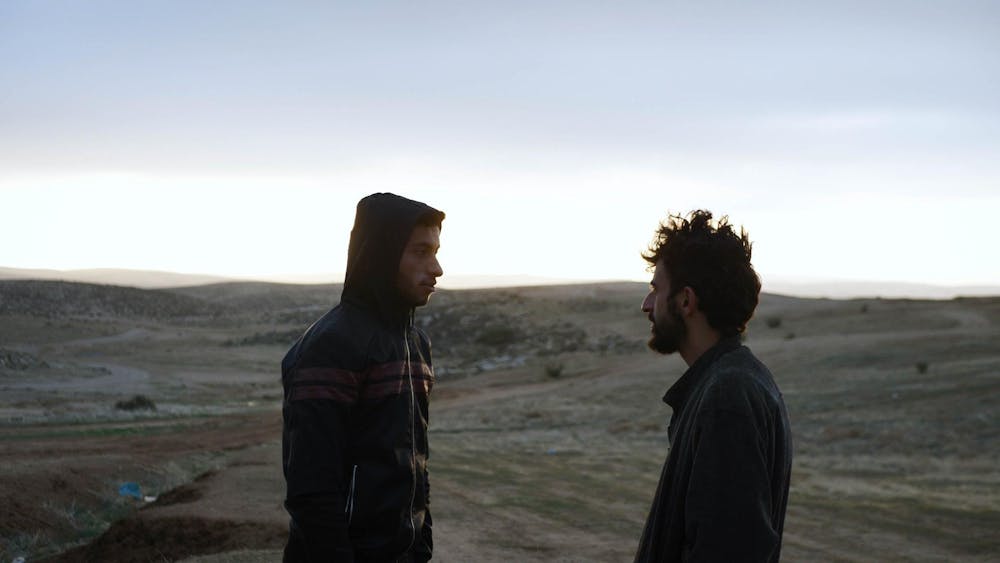A bold and devastating depiction of reality, “No Other Land” evokes visceral reactions throughout its 92-minute-long runtime. Directed by a collective of four activists, two Palestinian and two Israeli, the documentary depicts the forced displacement of Palestinians in Masafer Yatta — a region in the occupied West Bank.
Masafer Yatta is also the homeland of Palestinian activist and filmmaker Basel Adra. Adra, along with Yuval Abraham, a Jewish Israeli journalist, filmed the destruction and settler violence perpetrated by the Israeli Defense Forces between 2019 and 2023. Home to thousands of Palestinians, Masafer Yatta was declared a restricted military zone in the 1980s by the IDF, but many Palestinian families decided to remain in their homes. In 2022, the Israeli High Court of Justice permitted the IDF to evict residents from eight communities in the region.
The film won the Academy Award for Best Documentary Feature Film in 2025. Just weeks after the Oscars, director Hamdan Ballal was attacked by Israeli settlers and detained by the IDF. According to the Associated Press, Ballal was blindfolded for over 20 hours. He was released the next day.
The film portrays the aftermath of the forced displacement in a striking show of unity, demonstrated through the collective nature of its filmmaking.
The film possesses a mutual recognition of how — despite residing in the same land — Abraham’s experience is defined by security and Adra’s by violence. At numerous moments during the documentary, Palestinian residents of Masafer Yatta express their frustration with Abraham and worry that they can never fully trust or relate to him.
Abraham possesses an optimism for the future that Adra clearly does not share, making their different backgrounds strikingly clear. But through the intentional acknowledgement of these differences, the unity that roots the film is strengthened. Abraham’s lack of complete understanding helps the audience understand that they themselves will never have total understanding, and with that comes a need for change.
“No Other Land” unflinchingly depicts the shootings and bulldozing of homes that occurred as a consequence of Palestinians resisting Israeli oppression. The audience witnesses Adra and his people — confined to the occupied West Bank — being forced to watch their homes be destroyed. The displacement feels direct and disastrous, with many forced to retreat to underground caves. Their very existence becomes impossible.
Filmmaking, at its core, is a medium that can elicit emotion, and “No Other Land” utilizes that ability to place the viewer directly in Adra’s lived experience in a way that is utterly striking. The documentary authentically portrays a mixture of activism and friendship with a backdrop of hurt, pain, loss of hope and loss of life. Abraham and Adra film themselves and their surroundings in a manner that is both professional and personal.
The matter-of-fact portrayal of the events in Masafer Yatta is what makes “No Other Land” so powerful. Despite its depiction of gut-wrenching heartbreak, the film doesn’t rely on shock tactics or guilt-tripping to make its point. Instead, it simply shows one person’s experience, in one place, at one moment in time.
“No Other Land” is not trying to manipulate the emotions of its viewers or tell people how to feel. It resists sensationalism and presents reality. Adra’s reality is woven through with destruction and injustice, and the film conveys it with striking clarity. The weight of the truth speaks for itself, leaving the audience with an undeniable conviction that the lived experiences of Palestinians cannot be ignored.





